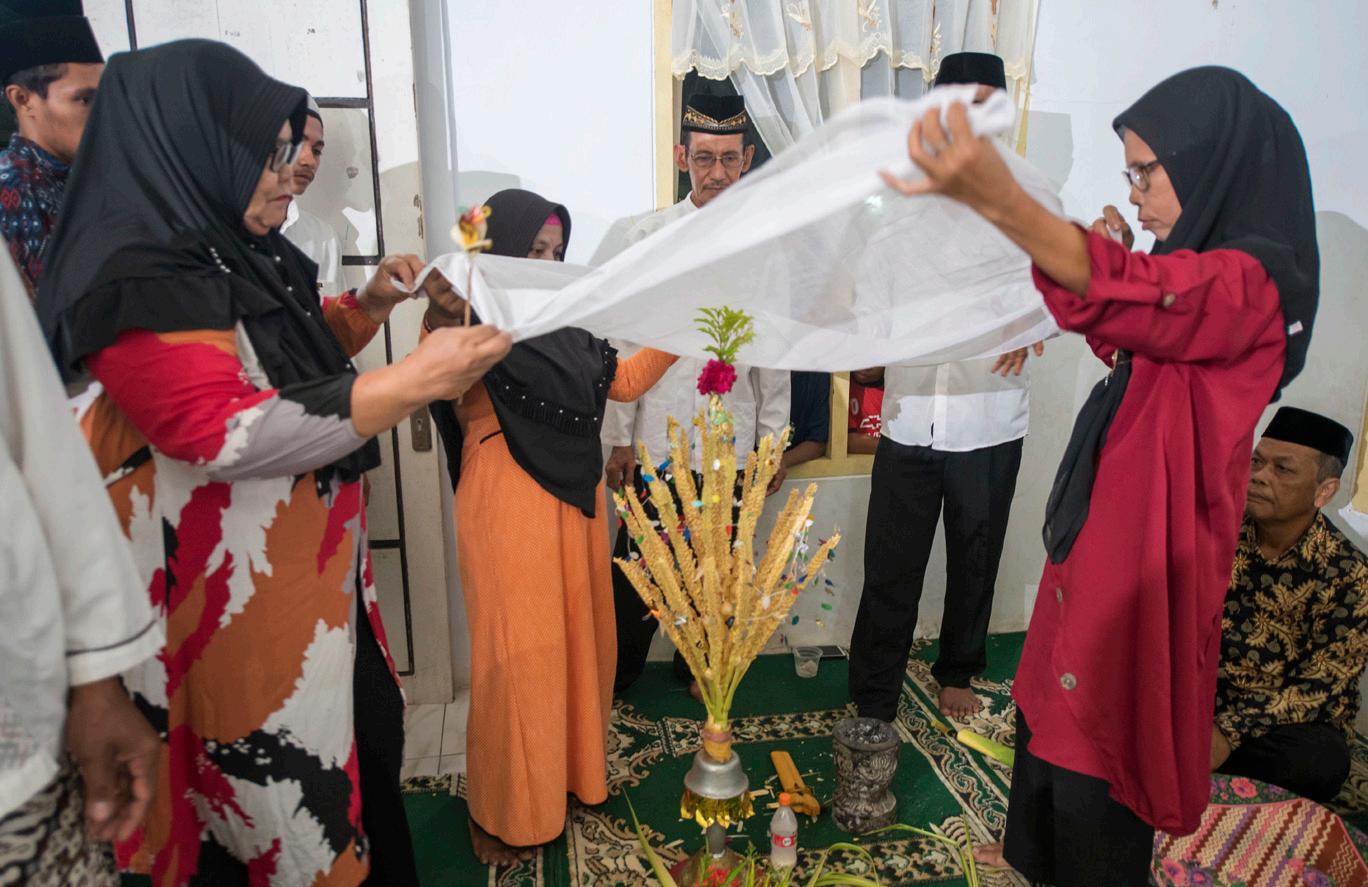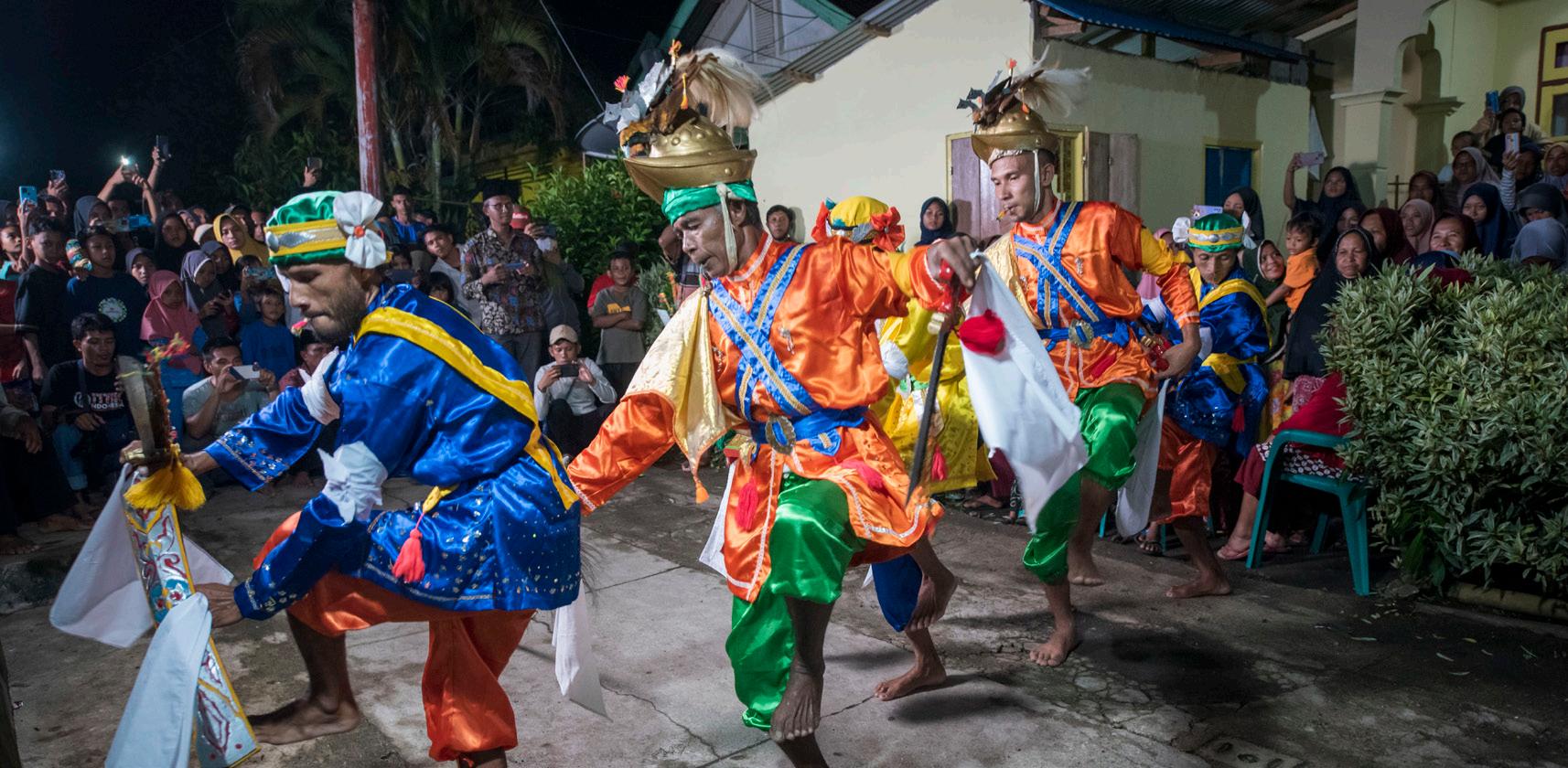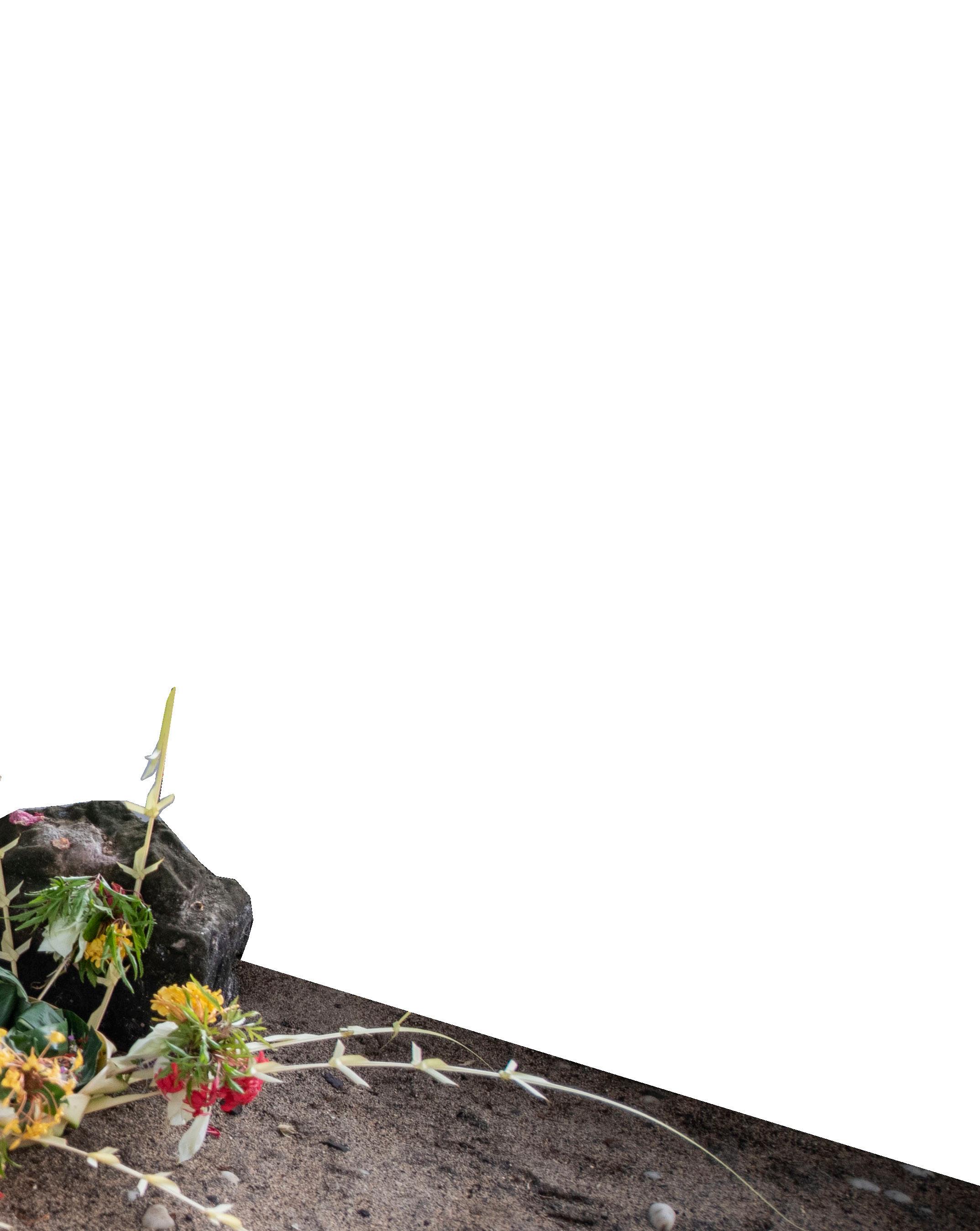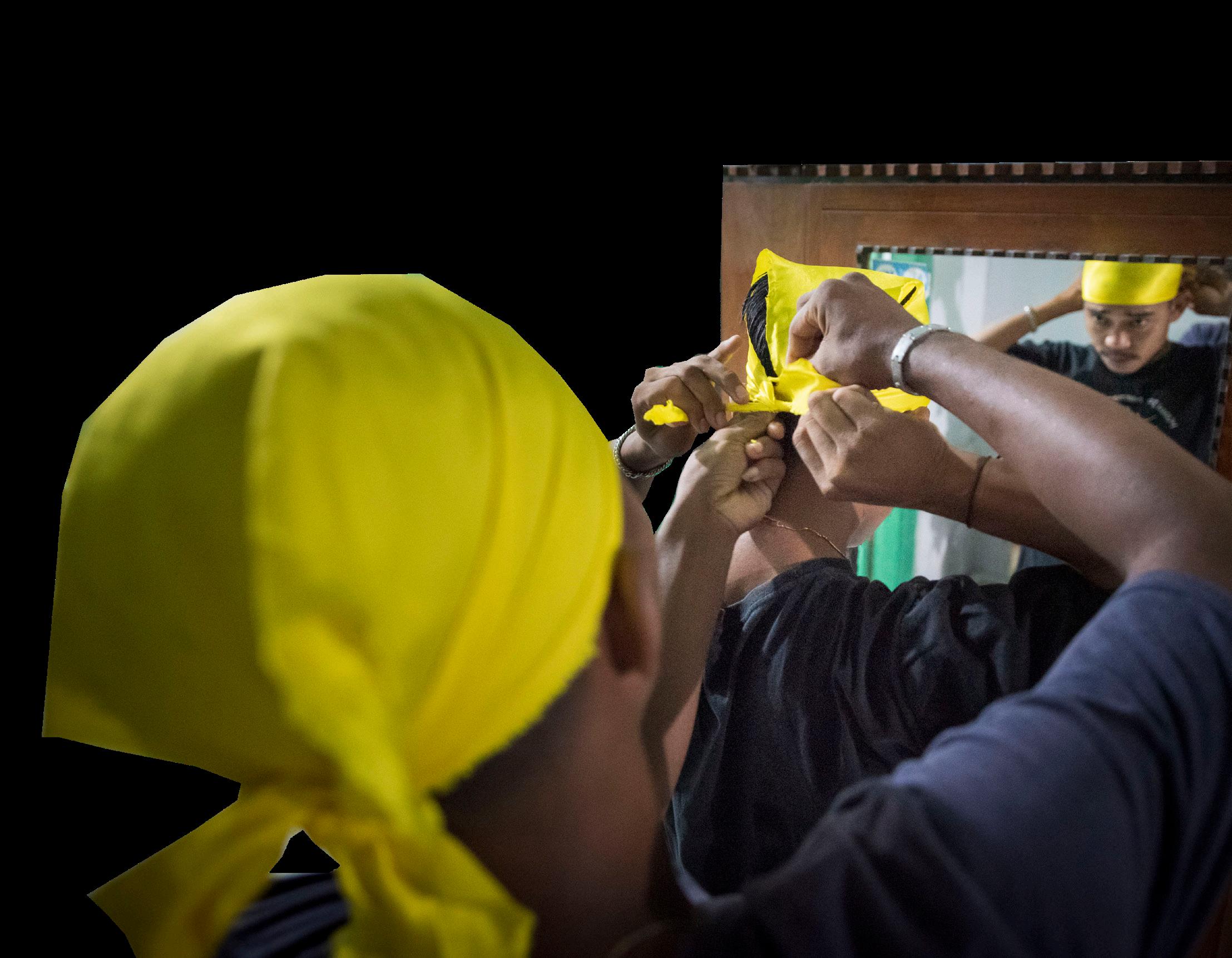
1 minute read
Village Opening Ritual Celebrating Patriotism, Renewing Ourselves
Banda is an area with a diverse population, spread over eight traditional villages. There are abundant traditions in the Banda area, one of which is the village opening (buka puang) ritual, which is usually held long before the big celebration and preceded by a deliberation of traditional leaders. The purpose of this ritual is to pray so that all future affairs will be smooth and full of divine blessings. During this ritual week, people should keep their minds, hearts and environment clean. The ritual equipment includes coconut leaves, seven-type of flowers, incense, and trinkets offerings. In the evening after isha prayer, the ritual begins.
Traditional leaders prepare betel nut leaf holders or woven offering baskets from coconut leaves, the number of which corresponds to the number of ancestral graves to be visited the next day. The women decorate the offering baskets with garlands of flowers and fill them with lime, betel, areca nut, gambier and tobacco.
Advertisement

The community holds the buka puang ritual – namely opening of the coconut flower, cutting and installing bamboo for the ceremonial archway and gate – two days before the peak of the celebration. The opened puang (coconut flower) is placed in the traditional houses next to heirlooms, cakalele dance attributes, and belang kora-kora attributes. This is in fact the essence of the village opening ritual. After buka puang, the cakalele warrior dance is performed and belang kora-kora regatta is carried out as the peak of the celebration to commemorate the spice route, which represents strength and patriotism in fighting the colonial power in the past. On special holidays, the people of Banda Neira welcome the people of Banda Eli who live in the Kei Islands, Southeast Maluku, who migrated four centuries ago. The cakalele dance at the Mini Palace in Banda Neira is usually livelier because the dancers come from various regions in Maluku. The ritual ends by closing the village. After that, cakalele attributes and belang kora-kora attributes are to be put away and stored, while the dance and the regatta may not be performed again until the next village opening ritual.


(Darus Hadi, Directorate of Religious Belief in God Almighty and Customary Law Community, the Ministry of Education, Culture, Research, and Technology).
Ancestor veneration

A group of customary elder and youth pilgrims is getting ready for a pilgrimage

















